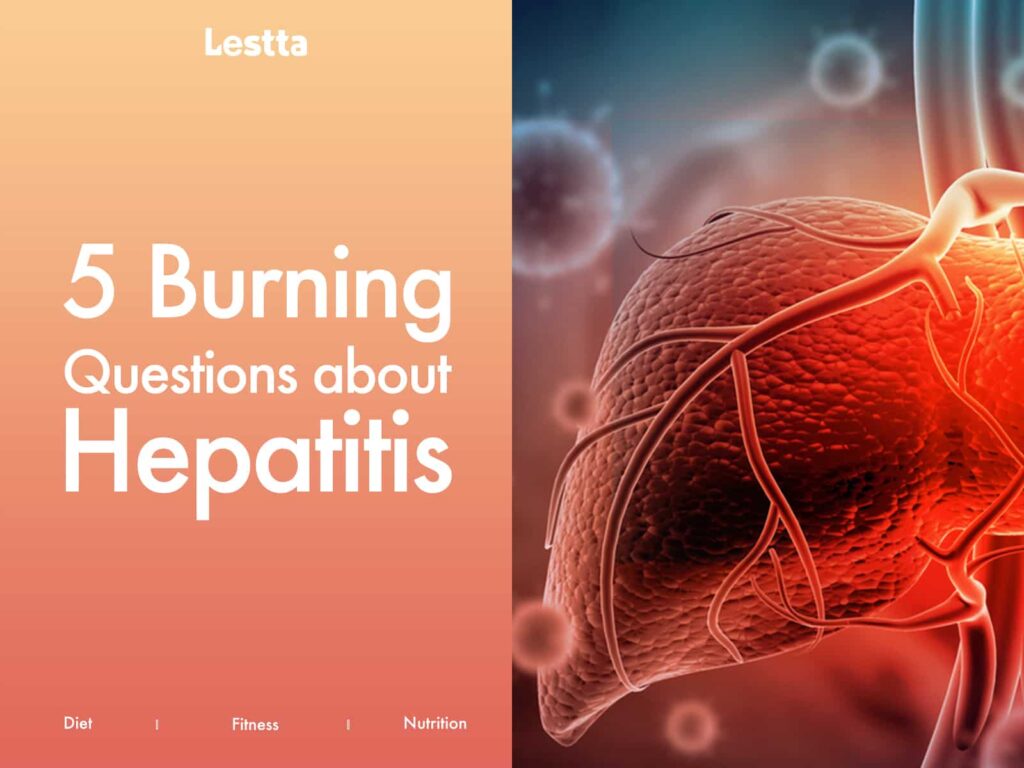5 Burning Questions about Hepatitis…Know Them!

Hepatitis is a widespread disease that affects millions worldwide. In this article, we will address five common and important questions related to hepatitis. By shedding light on these topics, we aim to enhance understanding and awareness of this condition.
Question 1: What is Hepatitis?
Hepatitis refers to the inflammation of the liver, typically caused by viral infections, namely hepatitis A, B, C, D, and E. The disease can also result from alcohol or drug abuse, autoimmune disorders, or exposure to toxins.
Hepatitis viruses have distinct transmission routes and vary in severity. It is crucial to note that hepatitis can lead to serious complications if left untreated, including liver cirrhosis and cancer.
Question 2: How is Hepatitis Transmitted?
Hepatitis A and E are primarily transmitted through contaminated food or water, while hepatitis B, C, and D spread through infected blood, sexual contact, or perinatal transmission. Unsafe injection practices and inadequate sterilization of medical equipment also contribute to hepatitis transmission.
Awareness about these modes of transmission can help individuals adopt preventive measures and reduce their risk of contracting the disease.
Question 3: What are the Symptoms of Hepatitis?
Symptoms of hepatitis may vary depending on the virus and the stage of the disease. Common signs include fatigue, jaundice (yellowing of the skin and eyes), dark urine, pale stools, abdominal pain, and loss of appetite.
Some individuals may experience flu-like symptoms such as fever, nausea, and joint pain. However, it’s important to note that hepatitis can be asymptomatic, especially in the early stages, making regular screenings and testing vital.
Question 4: How is Hepatitis Diagnosed and Treated?
Hepatitis diagnosis involves a combination of medical history evaluation, physical examination, blood tests, and imaging studies. Specific tests help identify the virus type, determine the extent of liver damage, and monitor the disease progression. Treatment approaches vary based on the hepatitis type and severity.
Antiviral medications, immune system modulators, and lifestyle changes, such as abstaining from alcohol and maintaining a healthy diet, are common management strategies. In some cases, liver transplantation may be necessary for end-stage liver disease.
Question 5: Can Hepatitis be Prevented?
Prevention plays a crucial role in combating hepatitis. Vaccinations are available for hepatitis A and B, offering long-term protection. Practicing good hygiene, such as regular handwashing, ensuring safe food and water sources, and using barrier methods during sexual activities, can significantly reduce the risk of infection.
Additionally, needle exchange programs, safe injection practices, and blood screening procedures are essential in preventing hepatitis transmission. Public awareness campaigns and education initiatives further contribute to prevention efforts.
Conclusion
Understanding the key aspects of hepatitis is vital for prevention, early detection, and effective management of the disease. By addressing these five burning questions, we hope to raise awareness and promote proactive measures to combat hepatitis. Stay informed, get vaccinated, and prioritize your liver health to safeguard yourself and others.









